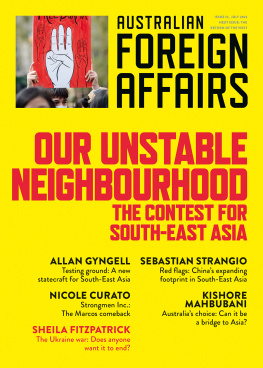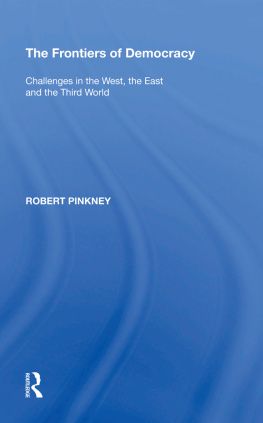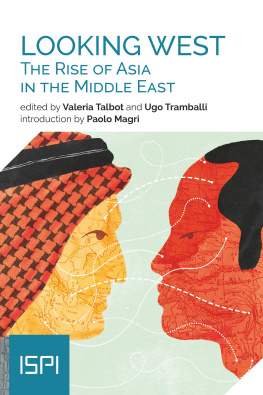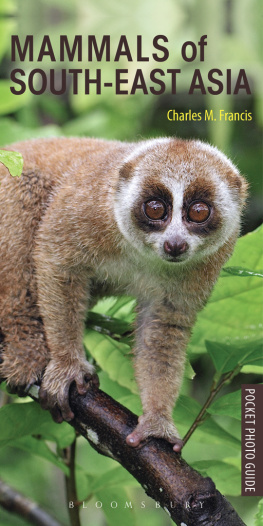ROUTLEDGE LIBRARY EDITIONS: MODERN EAST AND SOUTH EAST ASIA
Volume 7
THE STAKES OF DEMOCRACY IN SOUTH-EAST ASIA
THE STAKES OF DEMOCRACY IN SOUTH-EAST ASIA
H. J. VAN MOOK
First published in 1950 by George Allen and Unwin Ltd
This edition first published in 2015
by Routledge
2 Park Square, Milton Park, Abingdon, Oxon, OX14 4RN
and by Routledge
711 Third Avenue, New York, NY 10017
Routledge is an imprint of the Taylor & Francis Group, an informa business
1950 George Allen and Unwin Ltd
All rights reserved. No part of this book may be reprinted or reproduced or utilised in any form or by any electronic, mechanical, or other means, now known or hereafter invented, including photocopying and recording, or in any information storage or retrieval system, without permission in writing from the publishers.
Trademark notice: Product or corporate names may be trademarks or registered trademarks, and are used only for identification and explanation without intent to infringe.
British Library Cataloguing in Publication Data
A catalogue record for this book is available from the British Library
ISBN: 978-1-138-89258-3 (Set)
eISBN: 978-1-315-69792-5 (Set)
ISBN: 978-1-138-90148-3 (Volume 7)
eISBN: 978-1-315-69775-8 (Volume 7)
Publishers Note
The publisher has gone to great lengths to ensure the quality of this reprint but points out that some imperfections in the original copies may be apparent.
Disclaimer
The publisher has made every effort to trace copyright holders and would welcome correspondence from those they have been unable to trace.
The Stakes of Democracy in South-East Asia
By H. J. van MOOK
FIRST PUBLISHED IN GREAT BRITAIN IN 1950
Copyright in the U.S.A.
This book is copyright under the Berne Convention. No portion may he reproduced by any process without written permission. Inquiries should be addressed to the publishers.
PRINTED IN GREAT BRITAIN BY BISHOP & SONS LTD.
EDINBURGH
TO THE MEMORY OF
C. VAN VOLLENHOVEN,
Professor at the University of Leyden
Yes, we shall one day lose the sovereignty over our colonies; but that day is still distant, and when it comes it will bring us a profit equal to that of our present ownership. Our descendants, grown wise by the experience of what is happening before our eyes, will no longer make war upon those overseas territories when they are prepared for independence, but will readily grant them their liberty and so enter into new relationships of friendship and commerce with them, which will fully outweigh the advantages that we now enjoy.
From a speech in 1819 of G. K. van Hogendorp, the man who headed the liberation movement in the Netherlands in 1813 at the close of the Napoleonic occupation.
Contents
The Stakes of Democracy in South-East Asia
WHEN THE floods of war and Japanese occupation receded from the once peaceful and prosperous countries of Southeast Asia, what came to light looked like a landscape from which the topsoil had been washed away. Peace and prosperity were gone, and so were the institutions of government under which they had flourished. A major political and economic problem confronted the victorious Allies in this whole area, where the West had been the ruling power for more than a century. But the problem was as yet hardly recognized, because it concerned a part of the world that seemed far removed from the centre of gravity in the emerging world order and because, in former years, it had caused little trouble of international import.
But if the region had presented a quiet and unruffled aspect before World War II, the cover of Western domination had worn thin even in those years. The stirrings of political, racial, and cultural resistance against that domination gained strength among the populations of these dependent and semidependent areas as nationalism spread and became more defined with the progress of education and political consciousness.
In one case, that of the Philippines, the problem of the great change from dependence to independence obtained a solution in principle by the Tydings-MacDuffie Act, promising independence by July 4, 1946. In one other case, that of Thailand, the problem was one of factual, not formal, dependence, because Thailand had never ceased to be an independent nation. Elsewhere, in Ceylon, Burma, French Indo-China, Malaya, and the Netherlands Indies (Indonesia), the nationalist struggle for self-government and independence had proceded with varying intensity, yet without a serious threat of rebellion against the existingand on the whole equitablecolonial governments. The entire region enjoyed a high standard of living on the Asiatic scale, with a strong infusion of Western investments and business management and of Chinese and Indian commercial activity. And as the inevitability of ultimate national independence for these countries became more widely recognized, it seemed probable that this process would be completed in a gradual way, without violent upheavals or bloodshed.
There were valid reasons for expecting continued and mutually profitable relations between East and West in this zone of Asia after its peoples acquired their nationhood. The general tendency of the Western governments concerned was towards a policy of evolution, which agreed with the aspirations, if not the impatience, of the nationalist leaders. Repression and delay, when they occurred, were of a temporary nature and were rarely prolonged to the bursting point. Political enfranchisement was broadened in successive stages, and the imperialist influence of economic interests was increasingly neutralized by a liberal and farseeing statesmanship.
The seeds of rebellion and revolution were, however, always present, as was the danger of a reversion to the more fundamentally anti-Western attitude and agitation that had characterized so many clashes between Asia and Europe. None of the Western powers, not even the United States, had wholly and unreservedly directed their intentions and their resources towards an early creation of the necessary conditions for independence. There were always influential forces which wanted either to postpone liberation indefinitely or to withdraw the indispensable assistance prematurely. The educated nationalists remained suspicious, while the masses but slowly overcame an ingrained dislike of Western manners and methods. The mood and outlook of Southeast Asia had been deeply affected by Western civilization, but the undercurrent of Oriental aversion to that civilization was still there. In many sections the beginnings of a real synthesis could be observed; the bedrock of Asiatic life had been penetrated and modified, but certainly not completely transformed.
This promising yet labile situation was viciously disrupted by the attack of Japan. The one Asiatic nation that had used the lessons of Western science and technology to build up the armaments and the industrial equipment of a great power had at the same time failed to correct the distorted view of its relations with the world which an agelong seclusion had fostered. In arrogant pride it went forth to subject half a continent to its military rule and to found an empire that would provide it with the means for further conquest. To a certain extent its onslaught was a reaction against the measures of restriction by which the West had tried to moderate its expansionism and which were felt as an endeavour to strangle its economy. But it deliberately abandoned the methods of peaceful expansion, which would certainly have surmounted these temporary difficulties, because it had an exaggerated idea of its own strength and destiny and little or no comprehension of the character and the aspirations of other peoples, whether Asiatic or American or European.










